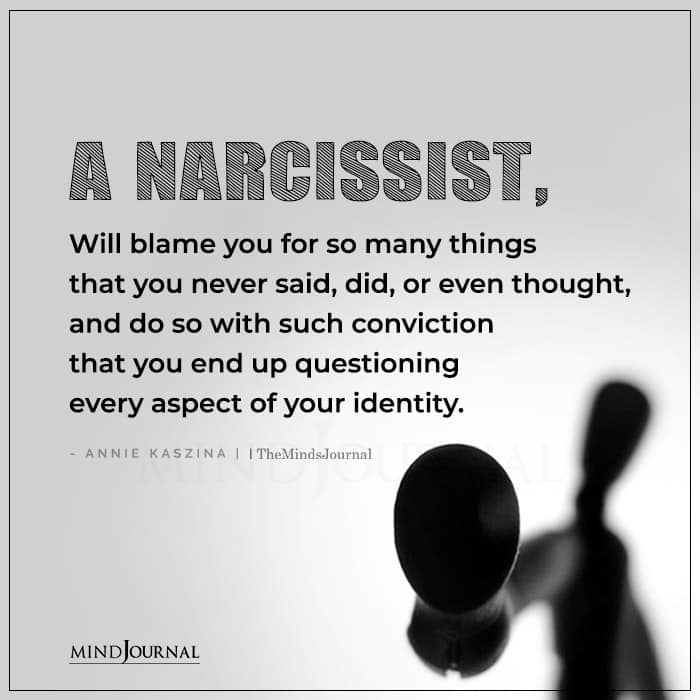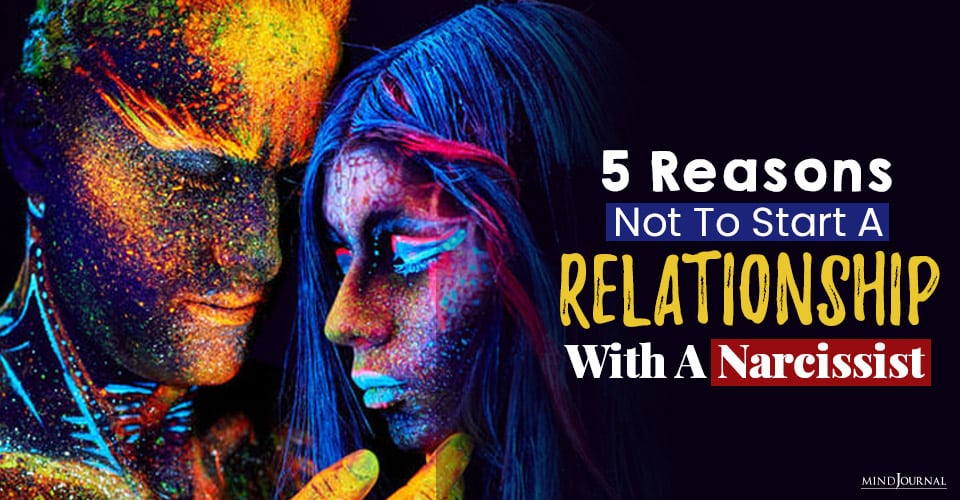Are you planning to start a relationship with a Narcissist?
No matter how much they claim to love you, eventually, they will abuse you.
Written By: Elinor Greenberg
KEY POINTS:
- Narcissists eventually devalue their partner, no matter how wonderful the partner is.
- It is difficult for people with NPD to transition from a self-centered view of life to a more couple-centered view.
- A romantic relationship with a partner who has narcissistic personality disorder is likely to become exhausting and debilitating.
I am often asked whether it is possible to have a successful long-term romantic relationship with a narcissist or whether it is possible to have a happy marriage when your mate has an untreated narcissistic personality disorder. Unfortunately, the answer to both questions is “no.” While many people with narcissistic personality disorder are very charming and convincing when they are courting you, they lack the emotional maturity and skills to make a real relationship work. Once you are past the courtship stage and the novelty of having you interested in them is over, they are going to start to treat you badly.
How badly will they treat you? What will they do?
In general, narcissists use the same relationship behaviours with all their mates. If you listen closely to how they talk about their former mates, why they broke up, who is to blame, and what they did to retaliate, you will have a fairly reliable preview of how they will act with you once the bloom is off the rose. This means that if they have a history of violence, harassment, infidelity, acrimonious and lengthy divorces, or any other unpleasant relationship behaviors, that is probably what you can eventually expect from them.
Also, please listen to how they talk about other people in general. If they have very few true friends and tend to devalue almost everyone, including the waiter, eventually it will be your turn.
Note: I am using the terms narcissist, narcissistic, and NPD as shorthand ways to refer to someone who qualifies for a diagnosis of narcissistic personality disorder.
Also read 11 Signs It’s An Emotionally Abusive Relationship
5 things that you need to know before you enter a relationship with a narcissist
If I had only five things to tell you about having a long-term intimate relationship with a partner who has a narcissistic personality disorder, they would be:
1. After the courtship is over, your narcissistic mate will start to insult and devalue you, no matter how much he or she claims to love you.
2. You will be blamed for many things that are not your fault.
3. Your narcissistic mate will pick serious fights over truly trivial matters—like the way you loaded the dishwasher.
4. If you do not have firm boundaries and your strategy is to keep giving in to avoid fights, things will only get worse.
5. Your love and empathy will not make a difference. This is not a situation that love can cure.
“Me” versus “we” relationships
One of the problems of being in a relationship with someone with a narcissistic personality disorder is that narcissists are all about themselves. They are only capable of what I call “me relationships.” In a “me relationship,” people only view events in terms of “How does this affect me? Am I getting what I want?” In a “we relationship,” there is a transition from the “me” to the “we.”
Also read Why Some People Attract Dysfunctional Relationships
In “we relationships,” both partners see each other ar as equals, and both expect to be treated in a fair and respectful fashion. In a successful “we relationship,” both partners are willing to sacrifice some of what they individually want in order to support the happiness of their mate. As a result, there are few, if any, power struggles and attempts to control the other person.
Unfortunately, the majority of narcissists are unable to transition from their usual “me relationship” to a “we relationship.” No matter how clever they may be in other areas of their life, they are curiously unable to understand the impact of their selfish behavior on the long-term health of their intimate relationships.
I-Thou relationships versus I-It relationships
The philosopher Martin Buber (1878-1965) published a very influential essay in German, Ich und Du (1923), that has since been republished in English many times under the title I and Thou, which aptly captures the essence of what narcissistic relationships are like. Buber is not specifically writing about narcissism. However, I have found his work to be very useful when considering what is actually going on below the surface of relationships where one partner has an untreated narcissistic personality disorder.
Buber distinguishes between “I-Thou” relationships, where each member sees the other as an equal partner in creating what occurs between them, and “I-It” relationships in which one person has control, and the other person is treated more like an object that is acted upon (the “it”). There are normal “I-It” relationships that are not narcissistic. In these, the “I-It” structure is meant to benefit the person who is the object of the other person’s attention.
An example of a healthy “I-It” relationship would be the relationship of a competent physician and an ill patient. The built-in inequality is for the patient’s benefit. The doctor is supposed to be more knowledgeable and is expected to take control, ask useful questions, listen carefully, and suggest treatments. The patient has a more passive role in the interaction, except when they have questions that they would like answered or are giving feedback about how the treatment affected them.
In the narcissistic “I-It” relationship, narcissists try to maintain control over their partner and expect their needs and wish to be prioritized over their partner’s.
Also read The Art Of Deflection: When Your Partner Accuses You of Being “Crazy”
Narcissists unfairly blame their partners
Not only will you find yourself in the “it” position in a relationship with a narcissist, but your narcissistic partner will also try to convince you that you are to blame for everything that goes wrong. They will claim that you are defective and that devaluing you and ignoring your opinions is justified. No matter how well they make their case and how much you want to give them the benefit of the doubt, what is actually happening is that you are being emotionally abused and unfairly blamed.
Narcissists are unwilling to apologize or take responsibility for their mistakes for reasons that actually have very little to do with you. The real reasons for their behavior stem from their disorder and events in their childhood. Your behaviors might trigger their rage, but you are not the cause. The damage happened long before they met you.

Learn to ignore the rationalizations of their abusive behavior
You will be told ridiculous and insulting things about yourself that are all intended to support their opinions and right to devalue you. If they are angry with you, they will try to make you feel stupid. If you disagree with them, they will try to make you feel stupid and wrong. Do not pay attention.
I will say it again: It is not really about you at all. They would eventually say these things even if you had three Ph.D.s, were incredibly attractive, and had just won the Nobel Prize.
Also read 12 Signs You Are Being Emotionally Abused
Summary
Intimate relationships with people who have narcissistic personality disorders eventually become exhausting and debilitating. The non-narcissistic partner ends up playing defense. Over time, the partner’s sense of well-being and trust in their narcissistic mate will be eroded by the constant bickering and devaluation. If you would like to not be driven crazy by nonsense, when the devaluing starts, take this as a signal that it is time to leave. The best long-term romantic relationship with a narcissist is the one you decline to have.
References:
Martin Buber (1923). Ich und Du. Leipzig: Insel Verlag.
Martin Buber (1937). I and Thou. transl. by Ronald Gregor Smith. Edinburgh: T. and T. Clark
Originally Appeared On: Psychology Today Republished with permission











Leave a Reply